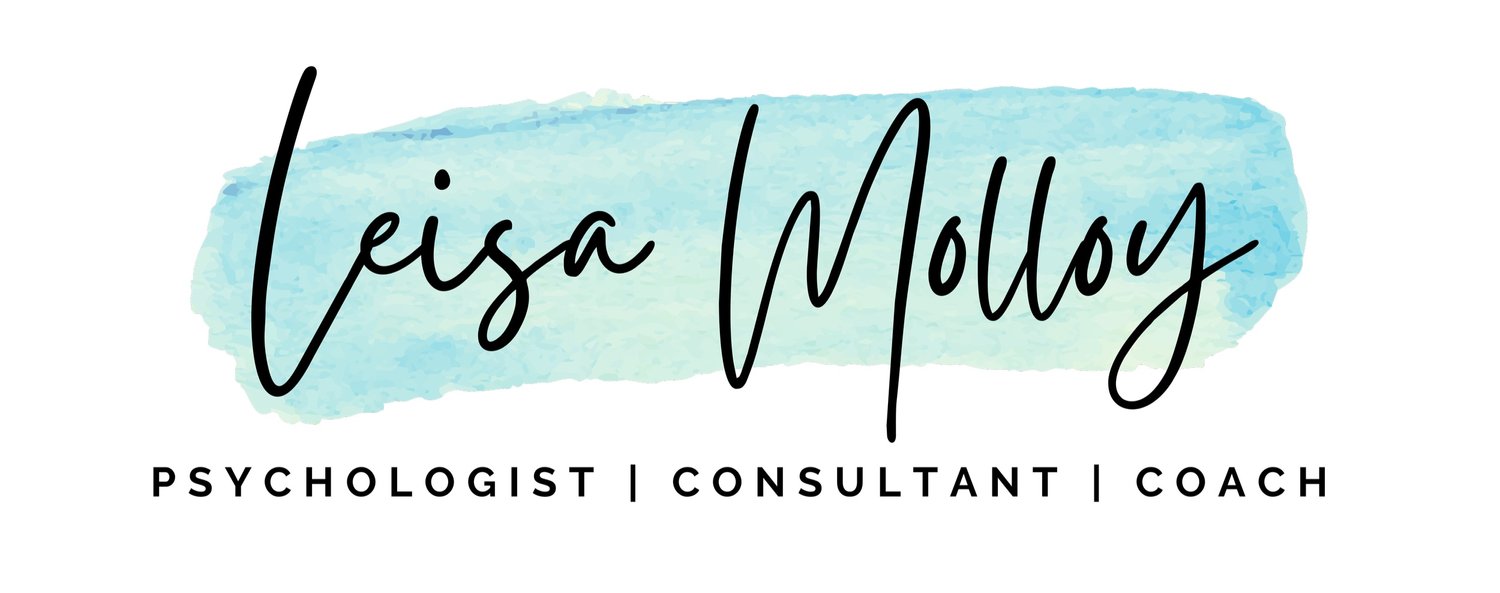On Self-awareness, Languishing, Being Liked, and the "Great Resignation"
I hope everyone is keeping well as we move into the final few months of 2021 (crazy, right!?)
This month's articles and content relate to a couple of different topics, but with some themes around self-awareness and handling conflict or 'tough' conversations. As always, I hope you find something interested in there :-)
Will you choose the "great attrition" or "great attraction"?
Right now, the so-called "great resignation" is a hot topic of discussion, with record numbers of employees leaving (or considering leaving) their current employers. This McKinsey article provides some interesting insights into where many organisations are going 'wrong' in retaining talent. In particular, the authors assert a strong need for companies and their leaders to develop a greater appreciation and understanding of what their people really want. In their view, many are making incorrect assumptions around the factors driving attrition.
Personally, I enjoyed the challenge posed to leaders around asking themselves some key questions to reflect on what might be really going on. Do we tend to 'shelter' toxic leaders? Do we have the right leadership capability in place? Are we genuinely showing appreciation for our people?
I also enjoyed this quote, which summarises the central message of the article - "Our research suggests that executives aren't listening to their people nearly enough. Don't be one of those executives." You can read the article via the McKinsey website here.
Do you worry too much about
people liking you?
Given the work I do around handling challenging and feedback conversations, it was inevitable that this article would make it into the newsletter! It includes several arguments for why leaders need to build their comfort with handling conflict and challenging conversations, despite fears of being disliked.
To me, many of the key points align with the philosophy of clear is kind - the idea that you aren't doing people any favours by avoiding feedback about what isn't working well. I also agree with the assertion that top performers often become frustrated (and sometimes leave) when seeing ineffective behaviour or performance go unchecked time and time again. Indeed, this is a scenario I've often seen play out in teams where the most senior leader is overly focused on being 'liked'.
Overall, I think this article provides some good food for thought on avoiding what the author describes as a potential "career killer" for many leaders. Follow this link to read the HBR article.
How can you avoid saying the wrong thing?
Finally, I want to share this great article on some words and phrases to avoid when navigating a potentially tricky or challenging conversation. I often provide my clients and program participants with resources that include examples of things they can actually say during 'real' conversations - also sharing some tips on what they ideally shouldn't say!
The suggestions here definitely align with my experience on those seemingly innocent comments or words that can inadvertently provoke a strong response in others. An example shared in the article is the "don't take it personally" comment, which is often interpreted by others as a complete lack of empathy or understanding for their experience.
Here's the article for those keen to avoid some of these common pitfalls.
How can you stop "languishing" and start finding flow?
This TED talk might be interesting for anyone who is feeling a bit "meh" right now. The talk is by Adam Grant, a well known Organisational Psychologist whose recent article about languishing has been shared widely and cited by many others.
In the talk, Grant challenges the idea that practising gratitude is one of the key ways to support well-being, instead emphasising the critical role of "flow". He talks about three conditions that promote flow - mastery, mindfulness, and mattering - sharing personal anecdotes to illustrate the small ways we can create these conditions in our day-to-day lives. Personally, I really liked the part about creating boundaries to avoid the "time confetti" phenomenon - indeed, I might share another resource on that topic in my next newsletter.
I hope you enjoy the TED talk, which can be found by following this link.
How can you build greater self-awareness?
This podcast episode includes an interview with Tasha Eurich, one of my favourite researchers on the topic of self-awareness. The conversation includes an exploration of several key findings in Eurich's research - what self-awareness really is, the different 'pillars' of self-awareness (see below), and the role self-awareness can play in our broader lives (not just our work lives).
My favourite part? The suggested "dinner of truth" activity, where you invite people to share feedback on what they find most annoying about you. Sounds scary, right? Absolutely! However, as Eurich says, those brave enough to take this challenge often discover that what needs to be changed is entirely within their control. For leaders, this can be extremely useful in identifying tangible ways to strengthen their effectiveness by focusing on those shifts that really matter most.
You can listen to the podcast episode here on the Franklin Covey "On Leadership" website, or here on Spotify or Apple podcasts.
How clearly do you see yourself?
This simple resource accompanies some of the work described above, outlining the seven 'pillars' of self-awareness identified in Tasha Eurich's work.
Personally, I think they all make a lot of sense, with my experience suggesting that some are trickier than others to explore when it comes to truly seeing ourselves clearly. Which ones could you spend more time exploring?
You can find the simple one-page resource by following this link.
Thanks for reading! Feel free to share with anyone who might find these insights helpful, or who might want to sign up and join the community.






